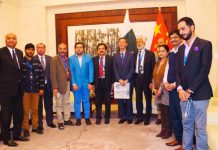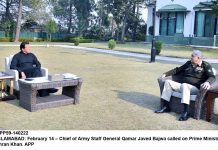مضمون کا ماخذ : estratégias para loteria
متعلقہ مضامین
-
Pakistan navy detects Indian spy plane near maritime border
-
MT آن لائن آفیشل گیم پلیٹ فارم ڈاؤن لوڈ گائیڈ
-
ڈیٹا بیس آن لائن آفیشل گیم آفیشل ویب سائٹ
-
فینکس رائز آفیشل انٹرٹینمنٹ انٹرنس کا افتتاح
-
فیزنٹ سرکاری تفریحی داخلی راستہ
-
Girl jumps to death from hotels rooftop in Lahore
-
Majeed remanded in NAB custody for 14 days
-
Strategic gains of Crusade against terrorism
-
Minister launches road checking campaign against defaulters
-
Muharramul Haram moon sighted
-
Time for the country to rise up against corrupt leaders
-
Shaheed Benazir Bhutto living in hearts cannot be forgotten: Bilawal













